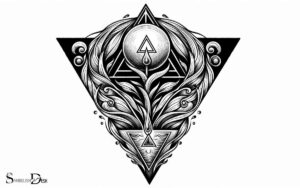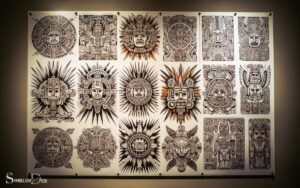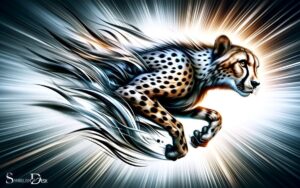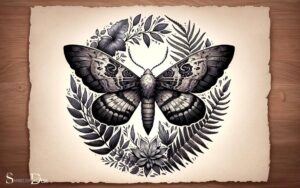What Does a Crane Tattoo Symbolize? Fidelity!
Crane tattoos are rich with symbolism, commonly representing longevity, fidelity, good fortune, and wisdom.
In various cultures, notably Japanese and Chinese, the crane is revered as a mystical creature associated with happiness and eternal youth. As a tattoo motif, it offers a deep connection to cultural heritage and personal ideals.
The symbolism of crane tattoos stems from multiple sources:
- Longevity and Immortality: Cranes are believed to have long lifespans, making them symbols of longevity and immortality.
- Fidelity and Love: Mating for life, cranes embody loyalty, making them a popular tattoo choice for representing enduring relationships.
- Good Fortune: In Asian cultures, cranes are considered auspicious, symbolizing good luck and prosperity.
- Wisdom: The crane’s serene and watchful nature has led to associations with wisdom and knowledge.
Examples in cultural contexts:
- Japanese Culture: Known as “Tsuru,” the crane is a symbol of good fortune and longevity.
- Chinese Culture: Cranes are seen as heavenly birds, embodying grace and purity.
A crane tattoo encapsulates a myriad of virtues, from eternal love to the pursuit of enlightenment. Exploring the symbolism of crane tattoos reveals a tapestry of meanings spanning various cultures.
With roots in ancient Japanese and Chinese beliefs, these tattoos symbolize spiritual depth, echoing nature’s beauty and the quest for knowledge.
The crane, often depicted in art and folklore, is celebrated for its grace and long life, making it an emblem of longevity and wisdom.
Those who choose a crane tattoo often do so to represent personal growth, a commitment to life’s journey, or as a tribute to cultural heritage.
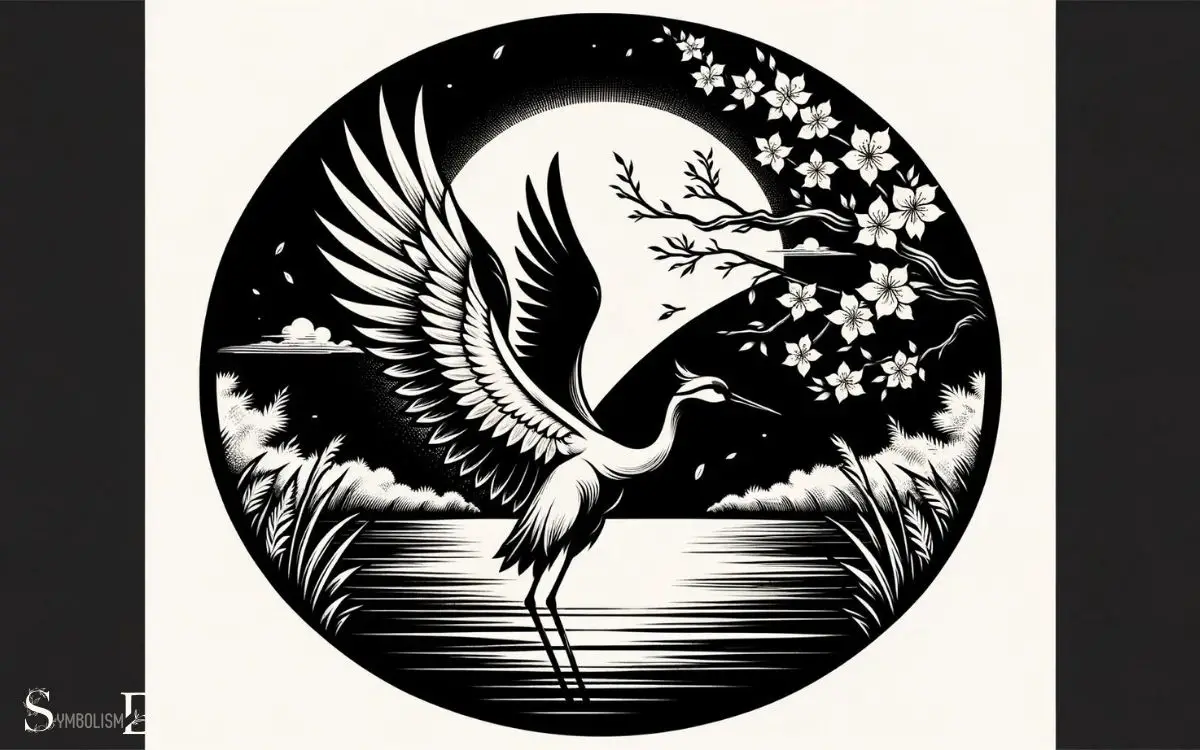
Key Takeaway
Origins of Crane Symbolism
The origins of crane symbolism date back to ancient civilizations in Asia, where the crane has been revered for centuries. In many Asian cultures, cranes are symbols of longevity, peace, and good fortune.
The Japanese, for example, view the crane as a symbol of happiness and eternal youth. In Chinese mythology, cranes are associated with wisdom and immortality.
The graceful and majestic nature of cranes has led to their portrayal in art, literature, and folklore throughout the ages.
Their significance in Asian cultures has also influenced the symbolism of cranes in other parts of the world.
Understanding the historical context of crane symbolism can provide valuable insights for those considering a crane tattoo, as it represents not only beauty and elegance but also the desire for a safe and prosperous life. In many Eastern cultures, cranes are seen as symbols of longevity and good fortune. They are often depicted in art and literature as creatures that bring happiness and blessings. Understanding the deep cultural significance of the crane can help individuals make a more informed decision when choosing this particular tattoo design. On the other hand, decoding barcode tattoos may not carry as much historical or symbolic meaning, but they can hold personal significance to those who choose to get them.
Crane Tattoos in Japanese Culture
Japanese culture embraces crane tattoos as a symbol of happiness, eternal youth, and good fortune, reflecting the reverence for cranes in Asian civilizations.
The graceful and majestic crane is deeply rooted in Japanese folklore and is associated with various positive attributes:
- Eternal Youth: Cranes are believed to live for a thousand years, symbolizing longevity and the quest for eternal youth.
- In Japanese art, cranes are often depicted alongside pine trees and turtles, collectively known as the ‘Three Friends of Winter,’ representing longevity and good fortune.
- Happiness and Good Fortune: The crane’s elegant dance and graceful movements evoke a sense of joy and prosperity in Japanese culture.
These meanings have made crane tattoos a popular choice in Japanese tattoo art, reflecting the desire for a fulfilling and fortunate life.
Transitioning to the subsequent section about ‘crane symbolism in Chinese tradition,’ the significance of cranes takes on a new dimension in Chinese culture.
Crane Symbolism in Chinese Tradition
Embracing a rich cultural significance, crane symbolism in Chinese tradition is deeply intertwined with notions of longevity, wisdom, and immortality.
In Chinese culture, cranes are revered as symbols of good fortune and prosperity. Their elegant and graceful appearance has made them a popular motif in various art forms, from paintings to embroidery.
The symbolism of the crane in Chinese tradition is often associated with the following key attributes:
| Attribute | Symbolism |
|---|---|
| Longevity | Cranes are believed to live for a thousand years, representing a long and fulfilling life. |
| Wisdom | The crane is associated with wisdom and knowledge, often depicted alongside revered sages. |
| Immortality | It is believed that cranes can transform into celestial beings, symbolizing the transcendence of mortal life. |
| Peace | Cranes are seen as symbols of peace and harmony, bringing tranquility and balance. |
| Fidelity | In Chinese tradition, cranes symbolize fidelity and loyalty in relationships. |
Crane Tattoos in Western Interpretation
Western interpretation of crane tattoos often emphasizes the graceful and elegant symbolism associated with these majestic birds.
Furthermore, the themes of longevity and wisdom are prevalent in the Western understanding of crane tattoos, reflecting the deep historical and cultural significance of cranes in various Western societies.
Understanding these themes provides insight into the enduring appeal of crane tattoos in Western tattoo art and symbolism.
Graceful Symbolism in Cranes
Cranes symbolize grace and elegance in Western tattoo art, reflecting a sense of poise and beauty.
In Western interpretation, crane tattoos are often associated with the following imagery:
- Longevity and Wisdom: The crane’s long lifespan and perceived wisdom in various cultures symbolize longevity and intelligence. Its sleek, elongated neck and slender legs add to the graceful aesthetic, embodying elegance and refinement.
Cranes have been depicted in Western art and literature as symbols of grace and sophistication. The imagery of a crane in flight or standing tall exudes a sense of tranquility and balance, evoking a feeling of harmony and peacefulness.
These qualities are often sought after by those who wish to embody a sense of grace and poise in their personal lives, making crane tattoos a popular choice for individuals desiring a symbol of beauty and elegance.
Longevity and Wisdom Themes
Associated with the themes of longevity and wisdom, crane tattoos in Western interpretation convey a sense of grace and intelligence. In Western culture, cranes are often associated with the attributes of longevity and wisdom.
These majestic birds are revered for their ability to live for many years and are seen as symbols of good fortune and immortality.
The crane’s graceful and poised demeanor further reinforces its association with wisdom and longevity.
When incorporated into tattoo designs, cranes are often depicted in a tranquil and regal manner, symbolizing the pursuit of knowledge and the attainment of inner peace.
In Western interpretations, crane tattoos serve as a reminder of the value of patience, insight, and the enduring pursuit of wisdom.
This representation resonates with individuals seeking tattoos that symbolize enduring qualities and a thoughtful approach to life.
Spiritual and Symbolic Meanings of Crane Tattoos
Crane tattoos carry deep spiritual and symbolic meanings, rooted in various cultural and traditional beliefs. The graceful and elegant nature of the crane symbolizes longevity, grace, and wisdom in many cultures.
Additionally, the crane holds significant spiritual importance as a totem animal and is revered for its symbolism of peace, harmony, and balance.
In Asian cultures, the crane has a rich history and is deeply intertwined with myths, folklore, and artistic representations, adding layers of cultural significance to crane tattoos.
Grace and Longevity Symbolism
The crane tattoo symbolizes grace and longevity, embodying spiritual and symbolic meanings that hold deep significance for many individuals.
In Japanese culture, the crane is revered as a symbol of good fortune, longevity, and fidelity. The graceful and elegant demeanor of the crane is often associated with attributes such as poise, purity, and peace.
Additionally, the crane’s ability to soar high in the sky is seen as a representation of spiritual elevation and transcendence.
Furthermore, in Chinese tradition, the crane is a symbol of immortality and enduring love, often depicted alongside pine trees, which symbolize longevity.
The imagery of a crane gracefully flying over a tranquil landscape or perched atop a pine tree evokes a sense of tranquility, resilience, and timeless beauty.
Crane as a Totem
One significant aspect of crane tattoos lies in their representation as a totem, embodying spiritual and symbolic meanings deeply revered by many individuals.
In various cultures, the crane is seen as a symbol of wisdom, balance, and good fortune. As a totem, the crane embodies traits such as grace, longevity, and loyalty.
In spiritual contexts, the crane is often associated with peace, tranquility, and the ability to navigate life’s challenges with grace and elegance.
The crane totem also signifies focus, determination, and the importance of maintaining a strong sense of self.
In many belief systems, the crane is revered for its ability to soar to great heights, representing the pursuit of spiritual growth and enlightenment.
People who choose to ink crane tattoos often seek to embody these virtues and carry the symbolism of the crane with them as a source of spiritual guidance and strength.
Cultural Significance in Asia
Incorporating the crane’s symbolic significance, crane tattoos hold deep spiritual and cultural meanings in Asia, resonating with individuals seeking spiritual guidance and strength.
In Asian cultures, the crane is a revered symbol, representing longevity, wisdom, and immortality. The crane is often depicted in various forms of Asian art, such as paintings and sculptures, further emphasizing its cultural significance.
When used in tattoo art, the crane symbolizes inner peace, balance, and the pursuit of higher knowledge. Additionally, the crane is associated with the practice of martial arts in Asia, signifying grace, strength, and discipline.
The image of a crane in flight or standing gracefully in a serene landscape is a powerful representation of harmony and resilience, making it a popular choice for those seeking to embody these qualities through their tattoos.
Modern Interpretations of Crane Tattoos
Modern tattoo enthusiasts often choose crane designs to symbolize grace, longevity, and elegance.
In modern interpretations, the crane tattoo represents a blend of traditional symbolism and personal meaning. Many individuals opt for crane tattoos to signify resilience and the ability to overcome challenges.
Furthermore, the crane is often associated with good fortune and happiness, making it a popular choice for those seeking positive symbolism in their body art.
Below is a table highlighting the modern interpretations of crane tattoos:
- Modern Interpretations of Crane Tattoos
- Graceful and Elegant Symbol
- Representation of Resilience
- Associated with Good Fortune
Conclusion
The crane tattoo symbolizes longevity, grace, and prosperity across various cultures. From its origins in Japanese and Chinese traditions to its modern interpretations in Western culture, the crane holds deep spiritual and symbolic meanings.
Whether it’s a traditional Japanese crane tattoo or a modern minimalist design, the crane continues to be a powerful symbol of hope and resilience for those who choose to adorn their bodies with its image.

